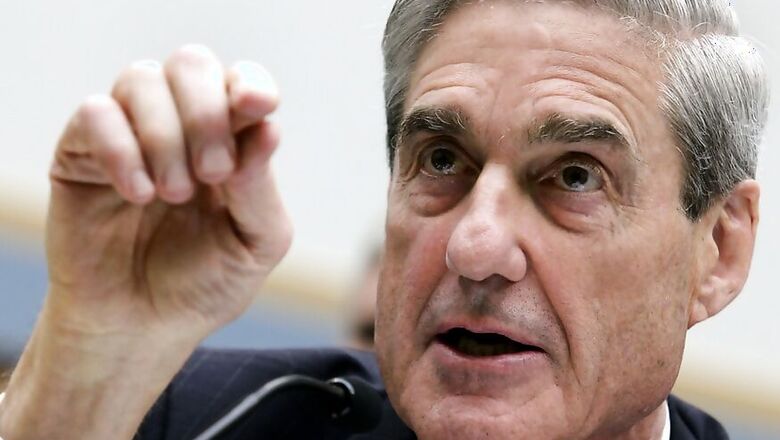
views
Washington: Special Counsel Robert Mueller's 448-page report capped an investigation that began in July 2016 after the FBI took alarm at Russian meddling in the presidential election battle.
It expanded to include obstruction of justice allegations against President Donald Trump after Trump fired FBI director James Comey, who had overseen the investigation. Mueller was then named to lead the effort in May 2017.
Mueller's investigation charged in total 34 people. Six were deeply involved in Trump's presidential campaign, including his personal lawyer Michael Cohen, campaign chairman Paul Manafort and national security advisor Michael Flynn. But only Russians were charged for election meddling, the focus of the investigation; Americans were charged mostly with lying to investigators or wrongdoing unrelated to the election.
The first volume of his report detailed the investigation into Russian meddling and explained why Russians were charged with criminal conspiracy but not Americans.
The second volume examined the obstruction allegations.
- Russian election meddling -
The report says that as early as 2014, arms of the Kremlin and Russian intelligence, at the instigation of President Vladimir Putin, began actively interfering in US politics. One operation, by the Russian Internet Research Agency, involved manipulating social media to influence American voter views, aiming to damage Democratic frontrunner Hillary Clinton and boost Republican Trump.
The second operation involved hacking by the GRU, Moscow's military intelligence agency, into election systems and campaign computer networks. The hackers obtained large volumes of documents and communications from Clinton's campaign that were leaked online, primarily through WikiLeaks, during the race to harm her campaign.
The report lays out detailed evidence backing the decision to charge 12 GRU agents and 13 from the Internet Research Agency with conspiracy against the United States.
- Collusion/coordination with Russians -
The report details scores of willing contacts between the Trump campaign and Russians, including efforts to obtain dirt on Clinton, negotiations for a massive Trump Tower real estate deal in Moscow, liaising with WikiLeaks on the materials stolen by the GRU, secret calls with the Russian ambassador to Washington, sharing campaign data with a Kremlin-linked businessman, and talks on arranging a Trump-Putin meeting.
The contacts added up to an extensive record of attempted collusion and coordination. The report said the campaign "expected" to benefit from Moscow's meddling.
But Mueller explained that "collusion" and "coordination" are not specific criminal offenses. Instead, the focus was on whether there was an active criminal conspiracy with the Russians, and no such deliberate conspiracy was found.
"Although the investigation established that the Russian government perceived it would benefit from a Trump presidency and worked to secure that outcome, and that the campaign expected it would benefit electorally from information stolen and released through Russian efforts, the investigation did not establish that members of the Trump campaign conspired or coordinated with the Russian government in its election interference activities," the report concluded.
- Obstruction of justice -
Mueller laid out at least 10 instances in which Trump allegedly obstructed justice, including pressuring Comey to close an investigation of Flynn, Comey's firing, efforts to curb and remove Mueller, and efforts to influence the testimony of campaign and White House associates, including what appeared to be offers of pardons.
The evidence presented by the report is strong, legal experts say.
But Mueller did not recommend charges, saying he was blocked by Justice Department policy holding that the president cannot be charged with a felony while in office, and that it was then Congress' responsibility to determine if a president broke the law.
Yet in an oblique, backhanded phrase that left the general public confused, Mueller said he absolutely was not exonerating Trump.
"If we had confidence after a thorough investigation of the facts that the President clearly did not commit obstruction of justice, we would so state. Based on the facts and the applicable legal standards, we are unable to reach that judgment."




















Comments
0 comment